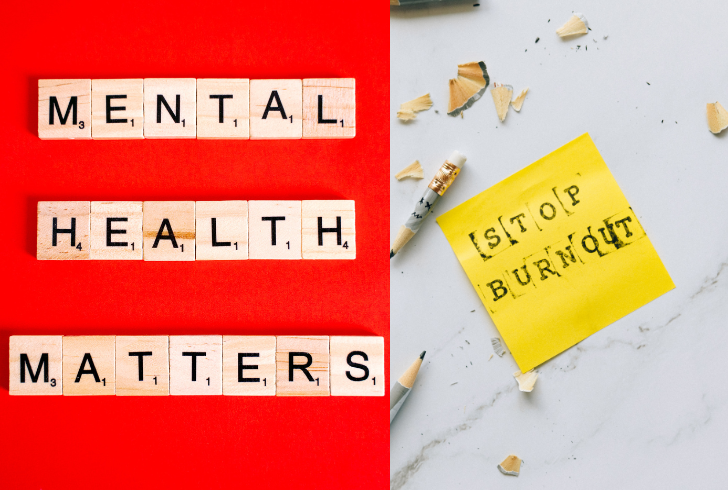
Nurturing the Heart: How Compassion Can Transform But Also Burden Your Mind

In a world brimming with kindness, there’s a hidden cost to caring too much. Have you ever wondered if being compassionate could actually hurt your mental well-being? Enter the intriguing concept of compassion fatigue, a phenomenon that often sneaks into the lives of those who selflessly dedicate themselves to caring for others.
Let’s dive into the depths of this emotional journey and explore how it impacts our mental health.
The Compassion Conundrum: A Balancing Act

Pexels | Anna Tarazevich | Nataliya Vaitkevich | Compassion fatigue is a form of emotional and physical exhaustion that can lead to burnout.
Compassion and empathy, the cornerstones of human connection, can become a double-edged sword. Imagine pouring all your emotional reserves into caring for someone, only to find yourself emotionally drained and physically exhausted.
Sussan Nwogwugwu, a compassionate psychiatric nurse practitioner, sheds light on this delicate balance. “It’s a tightrope walk between empathy and objectivity, between caring for others and caring for oneself,” she explains.
Key Insight: Compassion fatigue is a form of emotional and physical exhaustion that can lead to burnout, anxiety, and even depression.
Unveiling the Mental Health Maze
Psychotherapist Stephanie Sarkis delves into the profound effects of compassion fatigue. The toll it takes on mental health is staggering—opening the door to anxiety, depression, and haunting nightmares born from the trauma of others. Sarkis paints a vivid picture: “It’s like living the same day repeatedly, devoid of enrichment, fun, or any semblance of a break.”
Did You Know? People grappling with compassion fatigue are more susceptible to emotional outbursts and may resort to unhealthy coping mechanisms like alcohol, drugs, or overeating.

Pexels | Jasmin Wedding Photography | Recognizing compassion fatigue’s impact on relationships is the first step toward healing.
Compassion Fallout: Impact on Relationships
Compassion fatigue doesn’t confine itself to the individual; it spills over into personal relationships. Sarkis points out the potential shift in perspective, saying, “When you’re in a helping profession, you start seeing the range of what people can do to each other.” The fallout could lead to strained relationships as the burden of compassion fatigue casts a shadow on one’s worldview.
Insider Tip: Recognizing compassion fatigue’s impact on relationships is the first step toward healing and maintaining healthy connections.
Defending Your Sanity: Strategies Against Compassion Fatigue
So, what can you do if you find yourself caught in the web of compassion fatigue? Nwogwugwu and Sarkis advocate two powerful defenses: therapy and self-care. Picture self-care not as an emergency exit but as a proactive shield against the looming threat of burnout.
Proactive Self-Care Strategies:

Pexels | Edmond Dantès | Reaching out to friends who understand your compassion fatigue journey.
- Create a Relaxation Plan: Develop a personal sanctuary of tranquility—whether it’s a bubble bath, a leisurely walk, or simply dressing in comfy clothes. Reconnect with activities that bring joy and recharge your spirit.
- Seek Help: In the realm of psychiatry, there’s a concept called respite care. Delegating caregiving responsibilities to others for a brief mental vacation can work wonders. Enlist the support of your community, friends, or family.
- Open Up: Sarkis encourages reaching out to friends who understand the journey. Having a support system in similar situations can provide a unique understanding and a non-judgmental space for sharing experiences.
Cultivating Compassion Without Losing Yourself
Compassion is a beautiful trait that connects us all, but it’s crucial to navigate its waters carefully. As you extend kindness to others, remember to reserve a portion for yourself. Compassion fatigue may cast shadows, but with the right strategies, you can emerge into the light of self-renewal.
Embrace the art of nurturing your own heart as you continue to illuminate the lives of those around you. After all, a well-nurtured heart is the key to sustaining the endless cycle of compassion.
More in Life Hacks
-
`
How A Family Crisis Pushed Brad Pitt to Quit Drinking
Brad Pitt hit a wall in 2016. The actor, known for his cool demeanor and A-list charm, found himself in the...
July 27, 2025 -
`
This New York-Based Startup Has Cool Ways of Quitting Cigarettes, Vaping & Zyn
Quitting cigarettes, vaping, and Zyn has always felt clinical, awkward, and kind of lame. But Jones, a New York-based startup, is...
July 18, 2025 -
`
Inside Gwen Stefani’s Life With Her “Greatest Love” Blake Shelton
Gwen Stefani kicked off Blake Shelton’s 49th birthday in the most personal way possible. On June 18, 2025, she shared a...
July 11, 2025 -
`
What Is the Science Behind Out-of-Body Experiences (OBEs)?
Out-of-body experiences, or OBEs, sound like science fiction. But they are real, at least to those who experience them. OBEs involve...
July 5, 2025 -
`
Why Will Smith Regrets Rejecting a Starring Role in “Inception”
Will Smith once passed on a role that would go on to define sci-fi cinema. In a rare moment of honesty,...
June 29, 2025 -
`
5 Things Millionaires Are Doing With Their Money in 2025
Money doesn’t sit still when you are rich. Millionaires don’t hoard it, they grow it. Every dollar has a job to...
June 21, 2025 -
`
‘Living Room Kid’ vs. ‘Bedroom Kid’: The Difference & Parenting Tips
Parenting means learning the little clues that show how your child feels. One major clue? Where your kid spends most of...
June 13, 2025 -
`
5 Ways Morning Meditation Can Boost Your Mental Health
Morning meditation is backed by science and proven to make your brain and body feel better. Right after you wake up,...
June 8, 2025 -
`
Top 10 Best-Dressed Celebs at the 2025 Cannes Film Festival
The 2025 Cannes Film Festival is turning up the glam, but not without surprises. Just a day before the premieres began,...
May 30, 2025















You must be logged in to post a comment Login